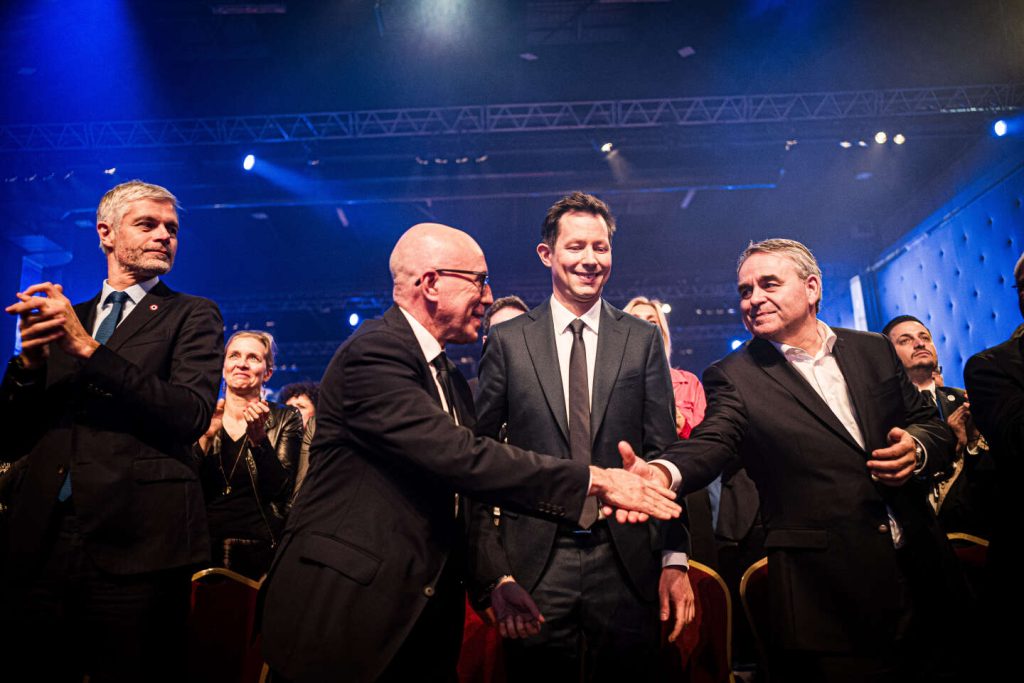Laurent Wauquiez, leader of the Les Républicains (LR) party in the Auvergne-Rhône-Alpes region, recently took a break from his usual visits to immerse himself in the country to join François-Xavier Bellamy, the LR’s lead candidate in the upcoming European elections, for a visit to Oullins-Pierre-Bénite in Rhône. During this visit, they engaged with local police officers and residents to discuss the ongoing struggle against drug trafficking in the area. This event also provided Wauquiez with an opportunity to criticize Interior Minister Gérald Darmanin and his handling of the issue, showcasing the party’s firm stance against drug dealers.
Wauquiez, who has expressed national ambitions and aspirations, including a desire to lead the right towards success in the 2027 presidential election, is playing his role as a government opponent. This was evidenced by his remark “Je ne suis pas président [de la République]… pour l’instant”, with a hint of a possible future presidential candidacy. However, not all members of the LR party share this view, as Xavier Bertrand, President of LR in Hauts-de-France, has expressed his intention to run for president as well. The rivalry between Wauquiez and Bertrand was evident at a recent campaign event, with Bertrand arriving late to Wauquiez’s speech, signaling underlying tensions within the party.
Efforts to reconcile the differences between various factions within LR have not been successful, with both Wauquiez and Bertrand maintaining a distance and displaying visible hostility towards each other. Despite attempts at brief gestures of reconciliation, such as a handshake at the Salon de l’agriculture, the deep-rooted resentment between the two leaders continues to persist. This ongoing rift highlights the challenges faced by the LR party in maintaining unity and coherence in the face of internal divisions and power struggles.
As the European elections approach, the LR party is focused on presenting a united front to voters. However, the underlying tensions between key figures such as Wauquiez and Bertrand threaten to undermine the party’s cohesion and effectiveness. The rivalry between these two leaders, both of whom have presidential aspirations, poses a significant challenge for the LR party in its efforts to maintain a unified and strong position in the political landscape.
The leadership struggle within LR reflects larger issues facing the French political landscape, as parties grapple with internal divisions and power struggles. The rivalry between Wauquiez and Bertrand is emblematic of the larger challenges faced by political parties in defining their identity and direction in an increasingly polarized political climate. As the LR party navigates these internal tensions, the outcome of the European elections and future political developments will likely be influenced by the dynamics between key figures such as Wauquiez, Bertrand, and other party leaders.














